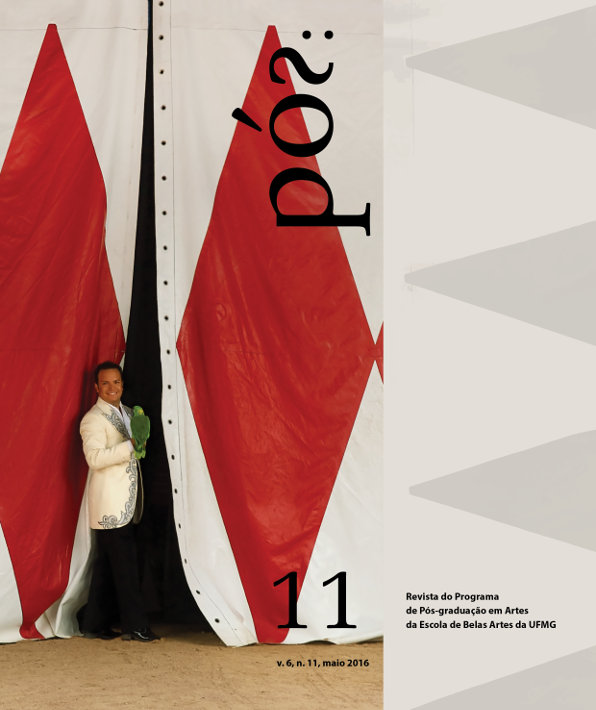COR, ABSTRAÇÃO, MÚSICA: LEN LYE E O CINEMA SEM CÂMERA
Len Lye e o cinema sem câmera
DOI:
https://doi.org/10.35699/2238-2046..15789Keywords:
Len Lye, film without camera, color cinemaAbstract
This paper deals with the beginning of the cinematographic career of Len Lye, precursor of film without camera. The text tells how the artist was deeply influenced by the South Pacific art, while incorporating modern art issues in his works. Thus it presents analysis of five of his films, focusing on the artist as creator of a pure cinema, one made by rhythms and chromatic sensations.
Downloads
References
BARBOSA, Paulo Roberto de Carvalho. O primeiro cinema em cores: tecnologia e estética do filme colorido até 1935. Saarbrücken: Novas Edições Acadêmicas, 2014.
BERNARDINI, Fornoni Aurora (Org.). O futurismo italiano. São Paulo: Perspectiva, 2013.
GUINSBURG, J. e LEIRNER, Sheila (Org.). O surrealismo. São Paulo: Perspectiva, 2008.
HORROCKS, Roger. Len Lye – a biography. Auckland: Auckland University Press, 2001.
TEIXEIRA, Francisco Elinaldo. Cinemas “não narrativos”. São Paulo: Alameda, 2012.
LEN LYE FOUNDATION. Disponível em: . Acesso em: 14 jun. 2015.
HORROCKS, Roger. Len Lye – a biography. Auckland: Auckland University Press, 2001.
Downloads
Additional Files
Published
Issue
Section
License
Copyright (c) 2016 Paulo Roberto de Carvalho Barbosa

This work is licensed under a Creative Commons Attribution-NonCommercial 4.0 International License.
Authors who publish in this journal agree to the following terms:
- Authors retain copyright and grant the journal the right of first publication, with the work simultaneously licensed under the a Creative Commons Attribution-NonCommercial 4.0 International License that permits sharing of the work with acknowledgement of authorship and initial publication in this journal;
- Authors are permitted to enter into additional contracts separately, for non-exclusive distribution of the version of the work published in this journal (e.g., the Creative Commons Attribution License).
- Authors are permitted and encouraged to publish and distribute their work online (e.g., in institutional repositories or on their home page) at any point before or during the editorial process, as this may generate productive changes as well as increase the impact and citation of the published work.
- It is the responsibility of the authors to obtain written permission to use in their articles materials protected by copyright law. Revista PÓS is not responsible for copyright breaches made by its contributors.












